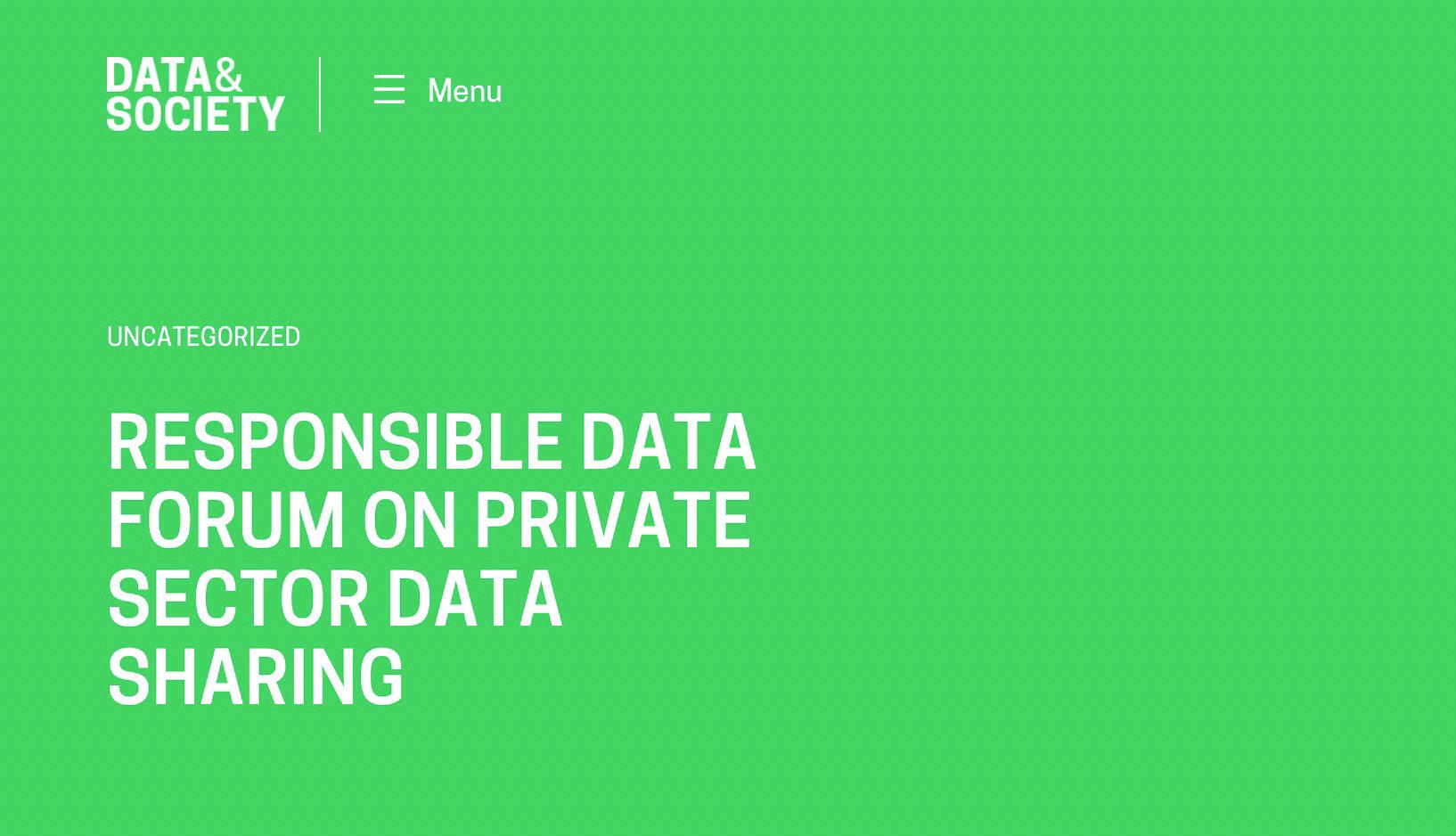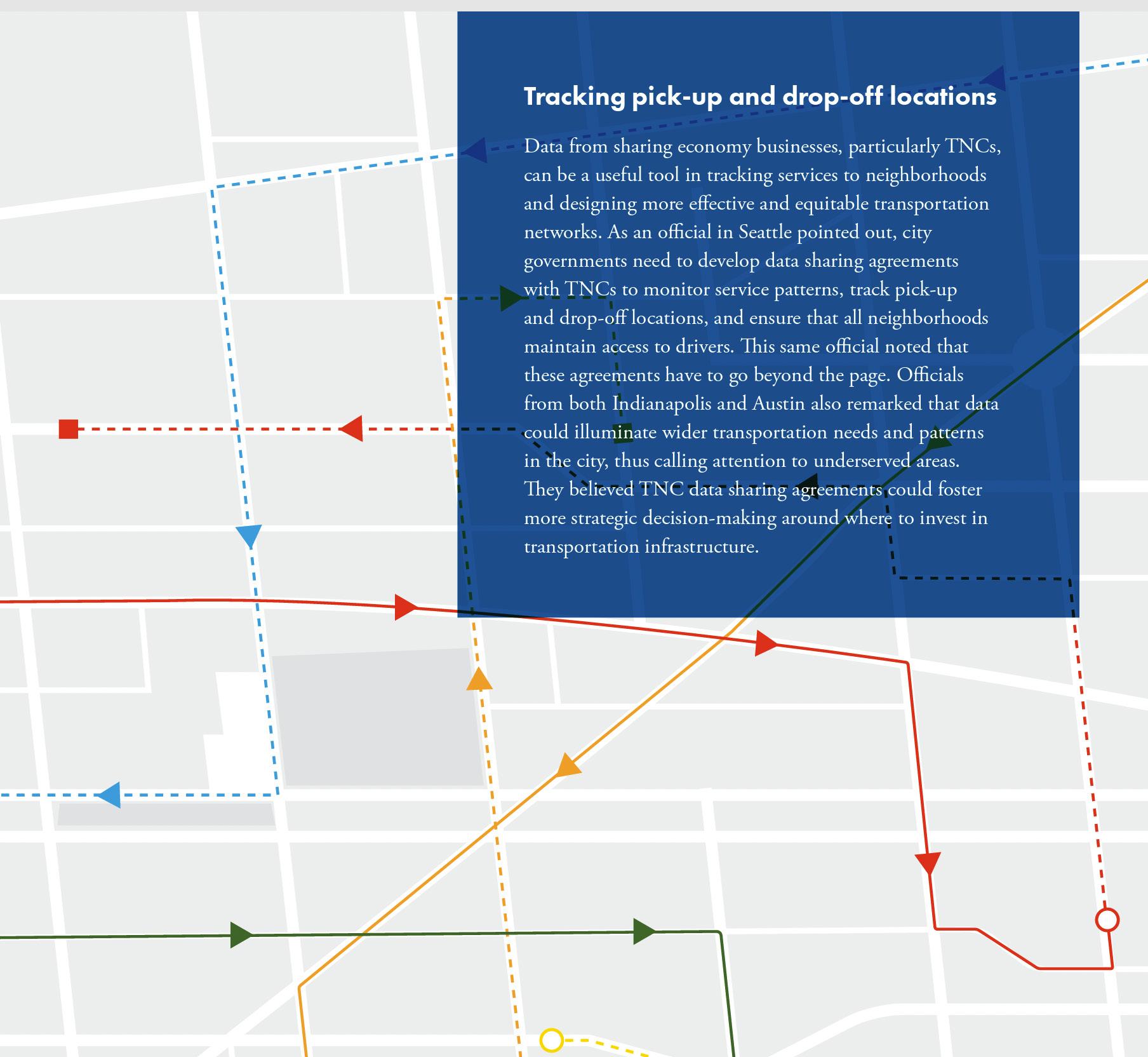
3 minute read
The Data Philanthropy Vision Goes Local
While the UN was thinking about these trends on the global scale, they applied acutely in cities. With the launch of the iPhone, and Apple’s app store, new mobile smartphone technologies were permeating urban space in ways never before seen, paving the way for urban platforms, such as Airbnb (launched in 2008) and Uber (launched in 2009). These apps and other mobile technologies produced massive troves of information about the city, but a vastly disproportionate share of it was in private hands. The city was eager for Global Pulse’s concept of data philanthropy.
Advocates and thought-leaders had taken note of Kirkpatrick’s vision for building a public data commons with private big data, and in July of 2014, Global Pulse partnered with the non-profit think tank Data and Society to convene experts from the private sector, academia, civil society, law, and philanthropy for a “Responsible Data Forum on the topic of private sector data sharing” at the Rockefeller Foundation in New York City.28
Figure 2. Screenshot from Data & Society’s “Responsible Data Forum on Private Sector Data Sharing”29event website.
28 “Responsible Data Forum on Private Sector Data Sharing,” Data & Society, accessed April 7, 2022, https:// datasociety.net/announcements/2014/08/25/responsible-data-forum-on-private-sector-data-sharing/.
29 “Responsible Data Forum on Private Sector Data Sharing.”
That same month, Stempeck, one of the convening’s attendees30, authored an article in Harvard Business review entitled “Sharing Data Is a Form of Corporate Philanthropy” in which he names cities, and sharing economy urban platforms in particular, as representing a key opportunity for the use of private sector big data for public good, asking “what if sharing economy companies shared their real-time housing, transit, and economic data with city governments or public interest groups?”31
Just a few months later, the National League of Cities, having conducted interviews with a sample of local government officials from cities across the country, published a report entitled “Cities, The Sharing Economy and What’s Next’’.32 The report explores data sharing as a priority for cities and makes clear that city officials saw data as a key benefit of sharing economy platform deployments—and of crucial importance for government objectives like program operation and compliance, economic impact evaluation, equity, transportation planning, and policymaking.33 The report further suggests that this viewpoint came at least in part from sharing economy platforms themselves who were quick to point to the potential public benefit of their data as a persuasive argument in support of allowing their operations.34
30 Matt Stempeck, “Why Use Private Data for Public Good,” Matt Stempeck (blog), August 11, 2014, https:// www.mattstempeck.com/2014/08/11/why-use-private-data-for-public-good/. 31 Stempeck, “Sharing Data Is a Form of Corporate Philanthropy.” 32 “Cities, the Sharing Economy, and What’s Next,” National League of Cities, accessed April 5, 2022, https:// www.nlc.org/resource/cities-the-sharing-economy-and-whats-next/.
33 “Cities, the Sharing Economy, and What’s Next.”
34 “Cities, the Sharing Economy, and What’s Next.”

Figure 3. Screenshot from National League of Cities report, “Cities, the Sharing Economy, and What’s Next”35
Despite the urgency with which the report describes cities’ need for data, the data sharing vision of cities interviewed was framed in the spirit of data philanthropy as a “win-win” for the public and private sectors, with little need for consternation or demands.36 In line with this sentiment, cities such as Washington, DC declined to include data requirements in legislation regulating sharing economy platforms, and, similarly, cities like Seattle and Austin described an aspirational desire to develop and enter into merely voluntary data sharing agreements with urban platforms.37 For private data sharing for public good to come to cities, it would arrive not in the form of public policy mandates, but as corporate philanthropy.
35 “Cities, the Sharing Economy, and What’s Next.” 36 Andreas Pawelke, “Data Philanthropy: Where Are We Now?,” UN Global Pulse (blog), May 8, 2013, https:// www.unglobalpulse.org/2013/05/data-philanthropy-where-are-we-now/. 37 “Cities, the Sharing Economy, and What’s Next.”







